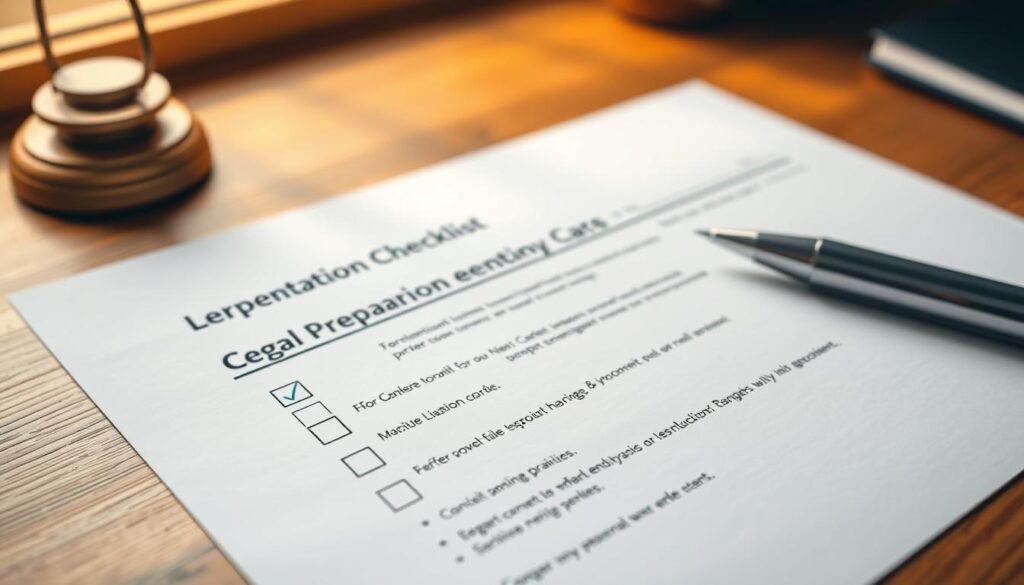Did you know over 90% of criminal cases in Canada never reach the Supreme Court? Understanding how legal proceedings unfold could mean the difference between confusion and clarity when facing justice. This guide breaks down everything you need to navigate Canada’s complex judicial landscape.
You’ll explore how provincial courts handle most offences, while higher courts manage serious crimes and appeals. Learn why appeal sessions involve panels of judges instead of juries, and how timelines vary between brief Federal Court reviews and multi-day Supreme Court cases.
Proper preparation matters. Whether dealing with initial charges or final appeals, knowing what to expect helps you present your position effectively. Discover how case details influence procedures and why following protocols impacts outcomes.
From provincial tribunals to the nation’s highest judicial body, this resource clarifies roles, expectations, and strategies. You’ll gain practical insights into managing paperwork, deadlines, and interactions with legal professionals.
Understanding Hearings in the Canadian Legal System
Canada’s judicial structure uses three tiers to address different case types. Each level has distinct responsibilities that shape how your case progresses. Knowing where your situation fits helps manage expectations and preparation.
Court Levels and Their Roles
The Court of Justice resolves most criminal charges and civil disputes under $100,000. Traffic violations, minor thefts, and small claims typically start here. Above it, the Court of King’s Bench handles serious criminal matters and high-value civil cases. This tier also reviews lower-level rulings.
At the provincial peak, the Court of Appeal examines legal errors in prior decisions. Three judges usually review arguments without hearing witnesses or accepting new evidence. Their focus stays on whether earlier trials followed proper procedures.
Trial vs. Appeal: Key Contrasts
Initial proceedings establish facts through witness accounts and physical proof. Appeals scrutinize how laws were applied. This shift changes what participants present and how panels evaluate information.
| Aspect | Trial | Appeal |
|---|---|---|
| Process Focus | Fact-finding, evidence review | Legal error identification |
| Evidence | New documents, testimony | Existing trial records |
| Participants | Juries, witnesses | Judges only |
| Outcome | Guilt/innocence ruling | Decision upheld or overturned |
Appellate panels prioritize legal arguments over emotional appeals. Multiple judges debate interpretation nuances rather than witness credibility. This approach maintains consistency across similar cases nationwide.
How to Prepare for a Hearing for Court
Effective preparation forms the foundation of successful legal proceedings. Whether navigating criminal charges or civil disputes, two pillars determine readiness: securing professional guidance and managing documentation strategically.
Gathering Legal Advice and Case Information
Engaging qualified counsel early ensures you understand rights, risks, and procedural requirements. Lawyers analyze evidence gaps, identify defence strategies, and clarify how laws apply to your situation. If self-representing, provincial registries provide checklists outlining forms, deadlines, and presentation protocols.

Organising Required Documents and Records
Create a numbered binder with these essentials:
- Police reports or incident summaries
- Witness contact details and statements
- Time-stamped photographs or video evidence
- Previous correspondence with legal professionals
Label each section clearly for quick reference during proceedings. Digital backups on encrypted drives prevent loss or tampering. Consult your counsel to confirm which materials require formal submission versus supplementary use.
Complex scenarios like publication bans demand specific approvals. A lawyer verifies what information remains confidential and what becomes public record. This prevents accidental violations that could delay resolutions or trigger penalties.
Before the Hearing: Key Considerations
Finalizing details before legal proceedings can significantly influence outcomes. Three critical areas demand attention to avoid last-minute complications.

Filing Requirements and Condensed Books
Rule 45 mandates submitting condensed books two business days prior to your scheduled date. These documents must include:
- Key excerpts from trial records
- Relevant legal authorities
- Page-numbered references
Late filings risk rejection or delayed reviews. Confirm submission deadlines with your provincial registry to ensure compliance.
Pre-Hearing Facility Tours
Familiarize yourself with courtroom layouts through arranged tours. Contact the registry via [email protected] or 1-844-365-9662 to schedule visits. Staff explain entry protocols, technology setups, and document submission processes during these walkthroughs.
Managing Publication Restrictions
Certain cases involve bans preventing identity disclosure. These protect:
- Victim privacy rights
- Youth offender confidentiality
- Sensitive witness information
Verify restrictions using your docket number through registry services. Violations carry fines or case delays. Always consult legal counsel about permissible communications.
| Task | Deadline | Contact Method |
|---|---|---|
| Condensed Books | 2 days pre-date | Electronic filing |
| Tour Requests | 5 days pre-date | Email/phone |
| Ban Checks | Anytime | Online portal |
During the Hearing: What to Expect in the Courtroom
What happens when you step into a Canadian courtroom? Proper conduct and role awareness help maintain proceedings’ integrity. This environment operates through strict protocols that demand attention to detail.

Essential Behavior Guidelines
All attendees must stand when judges enter or exit the room. This shows respect for Canada’s judicial authority. Address panel members as “Madam Justice” or “Mr. Chief Justice” – never use casual titles.
Legal representatives wear traditional robes unless health conditions require adjustments. Two counsel per party may present arguments, with interveners limited to one speaker each. Everyone stays until proceedings conclude.
Participant Responsibilities
A digital clock at the lectern tracks speaking time. Green signals 5 minutes remaining, yellow warns at 2 minutes, and red stops arguments. Registry officers manage documents and assist with procedural queries throughout sessions.
| Role | Key Duty | Time Limit |
|---|---|---|
| Appellant Counsel | Present legal arguments | 1 hour total |
| Respondent Counsel | Counter opposing claims | 1 hour total |
| Intervener Counsel | Provide specialized insights | 15-30 minutes |
| Judges | Question legal interpretations | Unlimited |
Oral submissions focus on legal principles rather than emotional appeals. Panel members frequently interrupt with clarification requests. Prepare concise responses to maintain momentum within time constraints.
Digital and Remote Attendance Options
Modern legal proceedings increasingly embrace digital solutions for efficiency and accessibility. Whether you’re representing clients or managing cases, understanding virtual participation protocols ensures seamless interactions with judicial authorities.

Preparing for Videoconference Appearances
Canadian courts may require counsel to join via Zoom for criminal matters. This platform demands specific preparation to maintain professionalism. Treat these sessions like physical courtroom appearances – full legal robes and formal conduct remain mandatory.
Technical glitches can derail arguments. Test your setup 48 hours beforehand using the court’s simulation link. Ensure your background appears neutral and free from distractions. Position cameras at eye level to simulate direct engagement with judges.
Technical Requirements and Online Access
Essential equipment includes:
- Zoom-compatible desktop/laptop
- HD webcam with 720p resolution
- Stable internet (5 Mbps upload/download)
The registry provides noise-cancelling headsets for oral submissions. Collect this gear during pre-hearing checks. Courtrooms offer free Wi-Fi if bringing personal devices – connect through the SCC-Public network using provided credentials.
| In-Person | Remote | Shared Requirements |
|---|---|---|
| Physical documents | Digital file sharing | Professional attire |
| Live witness interaction | Screen-sharing capabilities | Timely submissions |
| Hand-delivered materials | Encrypted email transfers | Respectful decorum |
Late logins risk exclusion from proceedings. Arrive 15 minutes early to troubleshoot audio/video issues. Registry staff monitor virtual lobbies to admit participants at scheduled times.
Navigating Legal Advice and Support Resources
Legal challenges become manageable when you know where to find reliable guidance. Canada’s justice system offers multiple tools to help you understand processes and make informed decisions.

Consulting with Lawyers and Court Counsel
Qualified lawyers decode complex procedures and protect your rights. They explain potential outcomes, review evidence gaps, and suggest defence strategies. For self-represented individuals, provincial registries provide free checklists outlining required forms and speaking protocols.
Registry staff answer procedural questions but cannot offer legal opinions. Schedule consultations early to avoid deadline pressures. Many provinces also fund legal aid programs for low-income residents facing criminal charges.
Accessing Public Court Information and Webcasts
Observing Supreme Court sessions builds practical knowledge. Most proceedings stream live online unless restricted by publication bans. Archived webcasts remain available indefinitely unless removed by judicial order.
The Cable Public Affairs Channel (CPAC) broadcasts significant cases nationwide. Media representatives request access through [email protected], while public users download recordings via the registry portal. Always verify if your case involves confidentiality rules before sharing details.
These resources demystify appeal processes and showcase effective argument techniques. Watching similar cases helps anticipate judges’ questions and refine your approach.
Additional Tips for Handling Canada Crime Cases
Practical considerations beyond legal arguments often determine how smoothly your matter progresses. Focus on logistical planning and emotional support systems to maintain stability during stressful proceedings.
Managing Case Details and Courtroom Security
Parking isn’t available at the facility on your scheduled day. Arrive early using public transit or nearby lots. The building offers full wheelchair access – notify registry staff in advance if you need accommodations.
Legal professionals can use the east entrance cafeteria during breaks. Remember: photography remains prohibited while sessions run. Counsel may take podium pictures post-proceedings but avoid capturing judges or members of the public.
Utilising Counselling and Support Services
Many provinces provide free crisis counselling for those involved in criminal trials. These services help manage stress while preserving focus on your case details. Legal aid offices often connect clients with community resources too.
Discuss emotional support options with your lawyer early. Some programs offer childcare assistance or transportation aid for trial dates. Building this safety net lets you concentrate on evidence presentation and procedural requirements.

